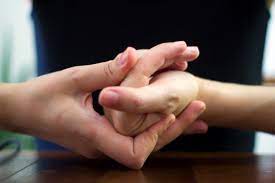It’s a bang! When a joint crack, whether it’s the knuckles, the knees, or the shoulders, everyone hears these sounds. When they hear this noise, many people become concerned. Is this an indicator of bone deterioration? Is this a sign that something else isn’t right? Is the background noise normal?
It’s important to note that hearing a popping sound is perfectly natural and does not indicate that bones are fracturing or deteriorating.

The noise made when a joint crack is normally perfectly normal and not reason for alarm. However, if the sound is accompanied by pain and swelling, it could indicate a problem. Aside than that, the pop or crack sound is quite natural.
What Causes Noise When A Joint Is Cracking?
People’s joints tend to become louder as they become older. Again, hearing these sounds is totally natural as a part of the ageing process. The cartilage in your joints wears away as you get older, causing the surfaces of your joints to grow rougher and the noises they make to get louder. Unless you suffer pain and swelling, these infrequent sounds, which you may hear while walking up the stairs or getting up after sitting for a long time, are most likely nothing to be concerned about.
What Sound Does It Make When You Crack Joints, And Why Does It Make That Sound?
Cracking joints create a variety of sounds for a variety of causes. You might hear a gentle snapping sound coming from your knees if you bend gently. You may hear a cracking sound from your back or spine if you rotate your torso. This sound typically implies that a muscle in that area is tense and pushing against the bone. A tendon or several tendons rubbing against the bone might also generate the sound.
Because there are so many tendons in close proximity to the bone, the loudest sounds occur from near the shoulder blades. If the noise from these sections irritates you or causes you concern, you might want to try gently stretching or practising yoga. Over time, the volume of the sound may decrease. These noises are, once again, nothing to be concerned about and are a fully natural procedure.
The Sound Made When Your Knuckles Crack.

Many people crack their knuckles to loosen the muscles and tendons in their hands and arms, and it can be a pleasurable experience. Nitrogen gas bubbles compress and explode as one cracks their knuckles, making a cracking sound. Around these joints, nitrogen occurs naturally. Cavitation is the term used to describe the sound made when gas bubbles are expelled or ruptured.
Move as often as possible to avoid creaky knuckles and joints, as well as the sounds associated with cracking. Moving your body lubricates it.
When we move, our joints break naturally, especially as we become older. Unless we additionally experience pain, these noises should not be a cause for alarm. However, intentionally breaking one’s own joints, or even having a buddy do it for you, might be harmful.
Please contact us promptly if you would like more information.

